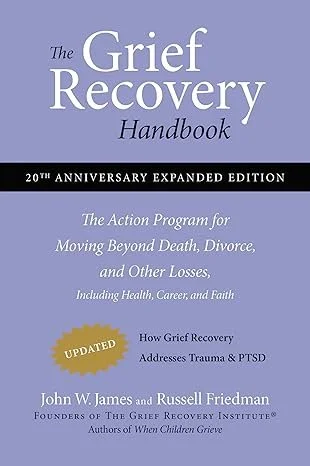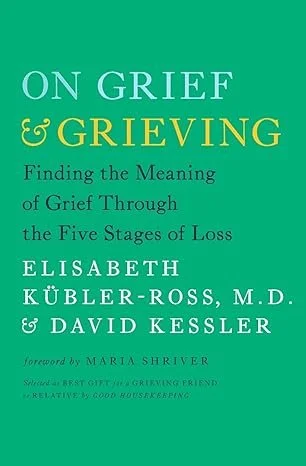
Whatever it is, we can help you cope and become yourself again.
grief
definition: deep and poignant distress or sorrow, the experience of coping with loss
While grief is often associated with the death of a loved one, it can also be experienced in response to other significant losses, such as the end of a relationship, the loss of a job, or the diagnosis of a serious illness. Grief can be a complex and challenging emotion, but it is an important part of the healing process.
What really is grief?
Grief can be defined as the emotional process of dealing with loss. While many of us associate grief with the painful period that follows the passing of a loved one, it is important to recognize that grief can manifest in response to any event that disrupts or challenges our sense of normalcy or self-identity. This encompassing definition extends to the loss of connections that shape our lives.
Grief may manifest in response to:
The departure of a friend, family member, partner, or cherished pet.
The dissolution of a marriage, friendship, or other forms of close relationships.
The displacement from your home, neighborhood, or community.
Changes in your job or career.
Financial instability.
The thwarting of a dream or aspiration.
Deteriorating health.
The passing of your youth.
Fertility issues.
Even your own imminent demise. For instance, individuals diagnosed with terminal illnesses may grieve the prospect of not having enough time to experience or achieve the things they had hoped for.
Are there different stages of grief?
Yes, there are some generally accepted stages of grief. Made popular by Elizabeth Kubler-Ross in 1969 in her book "On Death and Dying," she outlines the five stages of grief. This work remains the most renowned resource for comprehending the grieving process. Kubler-Ross conducted interviews with over 200 individuals facing terminal illnesses, which led to the identification of five common stages that people go through when confronting the impending reality of death.
While Kubler-Ross's research primarily pertains to individuals nearing the end of their lives, these stages have been widely applied to understanding grief in various types of loss. These stages encompass:
Denial: Difficulty in accepting the reality of a loss.
Anger: The expression of anger towards various entities, including those unable to prevent the loss, a higher power, oneself, or sometimes no specific target.
Bargaining: The contemplation of making a deal to avoid facing the loss, often accompanied by regret over past actions that might have prevented it.
Depression: The experience of intricate emotions linked to depression, including emotional detachment.
Acceptance: Ultimately, most individuals come to terms with the reality of the loss, even if the pain endures.
It's important to note that many individuals simplify these stages into a linear sequence that everyone must pass through during the grieving process. However, these stages are not rigid rules. Not everyone who experiences grief goes through these stages, and if they do, they do not necessarily occur in a specific order.
Are there different types of grief?
Yes, there are several different types of grief. There are several ways to experience grief, each highlighting the diverse and intricate nature of this emotional process.
Anticipatory Grief: involves mourning in advance of an actual loss. For instance, you may start grieving when you receive news of your or a loved one's terminal illness. This preparation can help you better cope with the eventual loss, though it's crucial not to let this early grieving overshadow the value of the present moments.
Abbreviated Grief: is a swift progression through the grieving process. It often follows anticipatory grief because you've already invested significant emotional energy while anticipating the loss. Experiencing a brief period of grief doesn't diminish the depth of your feelings for what's been lost. In grief, everyone moves at their own pace.
Delayed Grief: Rather than immediately processing the emotions associated with grief after a loss, delayed grief entails feeling them days, weeks, or even months later. Sometimes, the initial shock of the loss can temporarily hinder your ability to work through these emotions. Alternatively, the practical responsibilities accompanying the loss, such as arranging funerals and handling legal matters, might postpone the grieving process.
Inhibited Grief: Inhibited grief involves suppressing emotions. Many individuals haven't been taught how to acknowledge or process the complex emotions that emerge during grief. Consequently, some people unknowingly repress their feelings. Sadly, when emotions are not allowed to surface, grief can manifest as physical symptoms like digestive issues, insomnia, anxiety, or even panic attacks.
Cumulative Grief: occurs when you're simultaneously processing multiple losses. For example, you may not only be grieving the loss of a loved one but also dealing with the end of a marriage that followed that loss. Coping with multiple losses concurrently adds complexity to the grieving process.
Collective Grief: While we often view grief as a personal experience, groups and communities also experience collective grief. Significant events like wars, natural disasters, school shootings, and pandemics result in widespread losses that redefine our concept of "normal" life. As a collective, we mourn the shared experiences we've lost and grapple with envisioning a transformed future.
What are common symptoms of grief?
Grief possesses the capacity to impact every facet of your being—your mental, physical, and spiritual self.
Emotional Symptoms
Individuals grappling with grief frequently describe their emotions as arriving in intermittent waves, akin to emotions washing over them unexpectedly. Life might momentarily seem normal, only to be swiftly followed by tears and sorrow. Grief has the power to evoke a wide range of emotions, spanning from sadness and anger to moments of joy. At times, you may sense a detachment from your emotions, as if you are operating on autopilot.
The array of emotions you might encounter can be perplexing and contradictory, including:
Sadness over the loss of a loved one, coupled with relief that they are no longer suffering.
Yearning for a former spouse following a divorce, combined with excitement at the prospect of new love.
A sense of guilt for feeling thankful that you no longer have to provide exhausting, round-the-clock care for a dying family member.
Juxtaposed feelings of apathy, anger, sadness, and regret as you mourn the loss of a friend or family member with whom you had a strained or hostile relationship.
It is crucial to acknowledge and experience these emotions without judgment, as there are no "right" or "wrong" feelings when it comes to grief.
Physical Symptoms
The profound stress of loss can exact a significant physical toll on your body, overburdening your nervous system and compromising your immune system, making you more susceptible to illness. Physical manifestations of grief may encompass:
Fatigue
Headaches
Nausea
Restlessness
Upset stomach
Heart palpitations
Weak muscles or joint pain
Tightness in the chest or throat
Altered appetite (either reduced or increased)
Sleep disturbances, including insomnia or excessive sleep
Behavioral Changes
Grief can disrupt your ability to concentrate or complete tasks, leading to behaviors such as:
Confusion
Difficulty with decision-making and thinking
A loss of hope or direction
An inability to focus on anything beyond the loss
Impaired memory or difficulty managing responsibilities
Complexities of Grief
Grief is inherently intricate, but in certain instances, it can evolve into something even more complex, known as complicated or prolonged grief. This form of grief often arises in particularly challenging situations or features severe symptoms that disrupt daily life over an extended period.
Complicated grief may be associated with any type of grief, and it can be further exacerbated by factors such as:
Absent Grief: Occurs when there are no observable outward signs of grief. This may be due to denial or the internal processing of complex emotions that aren't visible to others.
Ambiguous Loss: Arises when there is a lack of closure regarding a loss, such as when a loved one is presumed dead but their body isn't recovered. It can also encompass grieving for a loved one who is still alive but emotionally distant, as in cases of incarceration or deportation.
Disenfranchised Grief: This occurs when society fails to acknowledge a loss as worthy of grief, resulting in feelings of isolation. Examples include grieving for the death of a pet or the loss of a same-sex partner, as well as deaths considered taboo by society, like suicide or drug overdose.
Traumatic Grief: Involves simultaneously processing a loss and trauma. Traumatic grief arises from losses that occur under harrowing and unpredictable circumstances, often leading to trauma or post-traumatic stress disorder (PTSD) that must be addressed alongside grief.
Grief can be considered complicated or prolonged when, even a year after the loss, you:
Feel as though a part of yourself has perished.
Deny the reality of the death or loss.
Avoid reminders of the death or loss.
Experience intense emotional pain related to the loss that disrupts daily life.
Feel emotionally numb, isolated, or that life lacks meaning or purpose.
Struggle to engage in daily activities, social interactions, enjoyable pursuits, or decision-making for the future.
This sucks, how long does grief last?
According to the American Psychological Association (APA), the general outlook and prognosis for grief is generally defined as lasting from 6 months to 2 years. Over time, symptoms tend to gradually improve.
It's crucial to acknowledge that grief doesn't conform to rigid timelines or neatly defined boundaries. Everyone's journey through grief, along with its duration, is highly individual. Moreover, there is no point at which one can declare themselves "finished" with grief. The connection to a departed loved one, a dissolved marriage, an unrealized dream, or any other loss becomes woven into the ongoing tapestry of your life—it remains an integral part of who you are.
However, if you find that you're struggling to cope with your loss, especially if it is impeding your ability to lead your life, it is advisable to seek assistance from a grief counselor or therapist.
How do I live with grief and the process of grieving?
Coping with grief requires both time and patience. Nonetheless, there are steps you can take to ease the grieving process for yourself and offer support to others who may depend on you.
Focus on yourself
Engage in self-care: Prioritize the well-being of your mind and body during this challenging time. Ensure you get seven to eight hours of sleep each night, and don't hesitate to take a nap if you require rejuvenation. Incorporate exercise and maintain a regular, nutritious diet. Consider mindfulness practices like meditation or yoga. Embrace activities that promote self-care, and refrain from feeling guilty about prioritizing your own needs while you grieve.
Follow a routine: Grief can disrupt your sense of normalcy, causing emotional upheaval. Adhering to a daily routine can help you regain a sense of control and emotional stability. Strive to maintain consistent sleeping and eating patterns and perform daily tasks systematically. Each completed task can be viewed as a personal victory.
Don’t disregard your emotions: Resist the urge to deflect painful emotions through excessive work or hobbies. Grief necessitates confronting and processing these challenging feelings. Do not be ashamed to express your emotions, whether through tears, reminiscing about shared moments with a departed loved one, or finding creative outlets to convey your feelings, such as journaling, storytelling, or singing songs that evoke memories.
Connect with others: While it is acceptable to seek solitude during your grieving process, avoid isolation. Remind yourself that not everything in your life has changed, even if it may feel that way. There are people who care about you and want to provide support. Reach out to your support network and lean on their presence.
Seek professional help: At times, addressing grief may require the guidance of a licensed provider (MD, PA, NP), therapist, or grief counselor. If grief significantly hinders your ability to lead your life or if your symptoms persist beyond 6 months without improvement, it may be appropriate to seek professional assistance and augment with medication management. Contact us today if you need help as we are grief specialists and dedicated to helping you overcome this.
Supporting a Loved One in Grief
Be there: Offer your presence and support based on the needs of your grieving loved one. Understand that you don't need to be an expert in grief or possess the perfect words. Your mere presence is meaningful. Inquire about their needs and be responsive. Do they wish to talk, be distracted, or receive help with practical matters like funeral arrangements? Adapt your support to their requirements.
Extend a helping hand: Not everyone feels comfortable asking for assistance, even when they require it. Pay attention to opportunities where you can provide aid and offer your help willingly. Whether it's driving children to school, assisting with household chores, or providing meals, your support can be invaluable.
Signal your willingness to listen: Be attuned to cues from your grieving loved one regarding their readiness to discuss their loss. It's common to feel uncertain or sensitive about mentioning the name of a departed loved one. However, many grieving individuals are awaiting a sign that it's acceptable to share their memories and emotions with others. If they initiate conversation, prioritize listening over speaking.
Avoid minimizing the loss: Be cautious not to diminish the significance of someone's loss or suggest they should have moved on already. Avoid offering overly positive interpretations of the loss, such as "it's all for the best" or "they are in a better place now." While these intentions may be well-meant, they can come across as dismissive to someone in mourning. Instead, permit your loved one to process their emotions authentically—it's a natural and vital aspect of the grieving process.
Frequently Asked Grief Questions
-
Grieving constitutes the active process of navigating grief. Professionals aiding individuals in coping with grief often use terms such as "working" or "progressing" through grief to underscore the challenges inherent in this journey.
-
Bereavement signifies the mourning phase that ensues following a death. It typically encompasses the personal grieving of the absence of a loved one, conducted privately, as well as the collective mourning shared with others.
-
Mourning pertains to the external expression of grief. It involves actions such as recounting stories about the departed, planting their favorite flowers in one's garden, or dispersing their ashes in a cherished vacation spot. Funerals and celebrations of life serve as gatherings where those in mourning can publicly share their grief with supportive individuals.
A Message from FAMh For All Mental Health
Each person's encounter with grief is distinctive. Yet, identifying the feelings, thoughts, and behaviors that may emerge during this period can offer reassurance that you are not alone. Like many others, you will navigate this experience. It is often said, and truly so, that the path out of grief leads through it. Confronting challenging emotions can bestow upon you the resilience needed to advance in life while reserving a special place in your heart for the cherished loved ones and life experiences you have lost.







